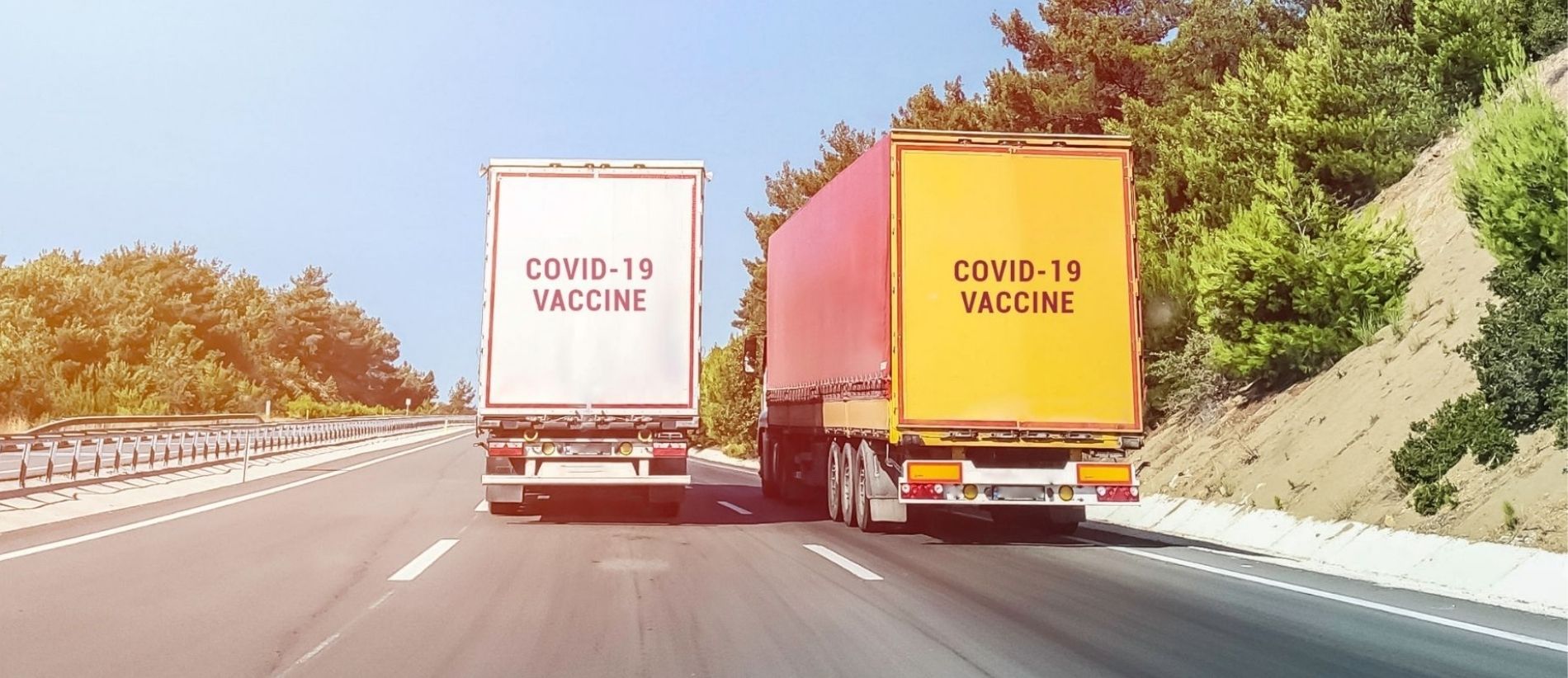Right now, the Covid-19 vaccine is perhaps the most coveted commodity in the world. Protecting this cargo during its journey around the globe and enabling it to safely reach its destination is a tremendous challenge, not only because the vaccine needs to be kept at temperatures of up to -70°C, but also because the shipments are likely to attract criminals trying to steal and/or divert the contents.
Criminal activity
Interpol has recently warned (opens a new window) of crime threat to Covid-19 vaccines, asking law enforcement across its 194 member countries to prepare for organised crime networks targeting Covid-19 vaccines, both physically and online. Safeguards need to be put in place to protect supply chains from theft and diversion to the black market. Governments have therefore kept quiet about the exact locations of the vaccine and of the lorries moving them around in order to reduce the risk.
Interpol notes that criminal networks are also likely to target unsuspecting members of the public via fake websites, promoting false cures that could pose a significant risk to both the health and lives of the public. Falsified vaccines making their way into the market could fuel scepticism, distrust, and the pandemic itself, ultimately costing lives.
The risk from criminal activity comes on top of an already extremely complicated logistical task, as the vaccine may lose its effect if not kept refrigerated throughout its journey. While quick to manufacture, the Pfizer/BioNTech vaccine needs to be stored at the low temperature of -70°C (-94° F). The vaccine should only be in transport at normal fridge temperatures for a maximum of six hours before it becomes unstable and may not work. Dry ice is used to secure the extremely low temperatures, but it is considered a hazardous material by the International Civil Aviation Organization and the US Department of Transportation, which could cause problems if the vaccine is shipped by air or sea.
Storage requirements
Dry ice changes to gas form as it breaks down in a process called sublimation. To prevent pressure from building up and rupturing the packaging, shippers must use ventilated containers that allow the gas to escape. The gas can also displace oxygen in confined spaces with poor ventilation, potentially creating a suffocation hazard.
Other vaccines require less extreme temperatures. A product developed by Moderna and the National Institute of Allergy and Infectious Diseases needs to be kept at -20°C during transportation, but this may still prove challenging, particularly in warmer regions.
Potential solutions
The distribution of the vaccine is likely to be particularly complex in developing countries, not only because they usually warmer climate but also due to a heightened risk of criminal activity. Further, countries where there isn’t a government-controlled, efficient healthcare system to manage the distribution centrally may also face challenges.
The London Market has been working on solutions to address the risks that come with a global vaccine distribution programme, developing a new approach towards logistics and risk management. In anticipation of a Covid-19 vaccine, Lloyd’s of London, as an example, has recently approved a new syndicate to serve as the dedicated risk facility for Covid-19-related transit and storage risks.
Developed through the Lloyd’s Lab accelerator, this facility applies devices that sense and log temperature, humidity, light, impact and enables GPS tracking. The information allows for automatic notifications upon arrival and is shown in context, including chain of custody, asset location, mode of transit, external weather, and exact location.
The syndicate forms the foundation of the new Global Health Risk Facility (GHRF) at Lloyd’s, which aims to provide comprehensive insurance and risk mitigation services to support the manufacturing and distribution of Covid-19 vaccine development efforts.
Since the start of the pandemic, the Lockton cargo and logistics team has delivered coverage for billions of dollars’ worth of ventilators in storage supporting hospitals, as well as for the global supply and storage of personal protection equipment (PPE) or test kits. We at Lockton are excited to help secure the essential cargo for what is set to become the world’s largest vaccination programme in human history.
For more information on how the Lockton Cargo & Logistics team can help you please click the button below:
Cargo & Logistics (opens a new window)
For further information, please contact:
Ian Franklin - Senior Vice president, Business Development Executive Cargo & Logistics
T: +44 (0)20 7933 2054
E: ian.franklin@uk.lockton.com (opens a new window)
Peter Hall - Partner and Head of Cargo & Logistics
T: +44 (0) 7766 558 669
E: peter.hall@uk.lockton.com (opens a new window)

